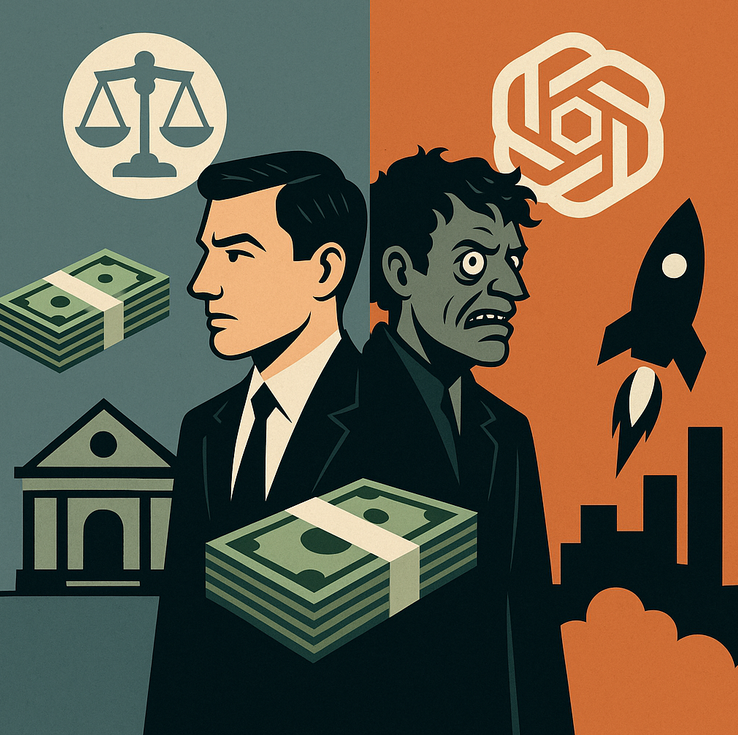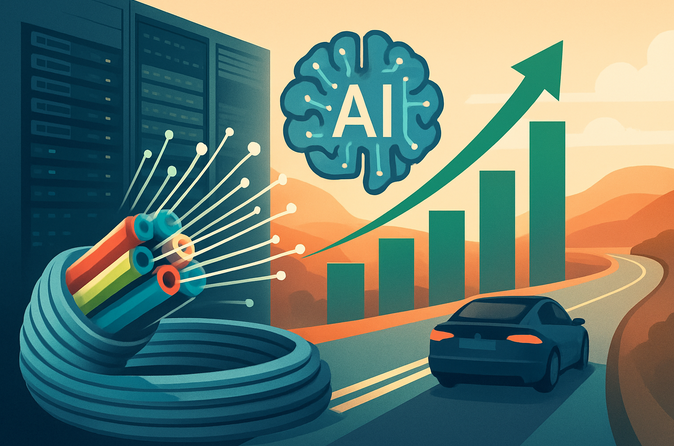The marketing landscape is undergoing a seismic shift, driven not by catchy slogans or flashy campaigns alone, but by the silent, powerful force of Artificial Intelligence (AI). Once a futuristic buzzword, AI has firmly established itself as an indispensable tool, transforming how businesses understand, engage, and convert customers. From hyper-personalized experiences to automated content creation and predictive analytics, AI is no longer just an advantage – it's rapidly becoming the baseline for competitive marketing efforts.
Marketing professionals across industries are grappling with an explosion of data and increasingly fragmented customer journeys. AI offers a lifeline, capable of processing vast information streams, identifying subtle patterns, and automating complex tasks at a scale previously unimaginable. As businesses navigate the complexities of the modern digital ecosystem, particularly with the ongoing deprecation of third-party cookies, AI's ability to leverage first-party data and generate actionable insights is proving invaluable.
The Era of Hyper-Personalization at Scale
Perhaps the most profound impact of AI in marketing lies in its ability to deliver true hyper-personalization. Gone are the days of broad demographic targeting. AI algorithms delve deep into individual customer data – analyzing Browse behavior, purchase history, real-time interactions, social media sentiment, and even external factors like seasonality – to understand preferences and predict future needs with startling accuracy.
"AI is moving far beyond basic personalization," notes a report from creative management platform Bannerflow. "Predictive analytics will become the driving force behind hyper-personalized marketing. Rather than reacting to customer actions, AI is set to anticipate their needs before they even realize them."
Streaming giants like Netflix and Spotify exemplify this power. Their AI recommendation engines analyze viewing and listening habits to curate personalized content suggestions – movie artwork might even change based on actors a user prefers – keeping users engaged and significantly boosting retention. Netflix estimates its AI-powered recommendation system saves it $1 billion annually in customer retention costs. Similarly, Starbucks utilizes AI to analyze purchase data, sending personalized offers via its app, driving sales and engagement. Tools like Dynamic Yield, Adobe Target, and OfferFit enable businesses of all sizes to implement real-time adjustments to website experiences, tailor product recommendations, and optimize communication timing based on AI-driven insights. OfferFit even moves beyond traditional A/B testing, using machine learning to continuously refine personalized offers and content variations daily.
AI as a Creative Partner: Content Generation and Optimization
The creative process itself is being reshaped by AI. Generative AI tools, popularized by platforms like OpenAI's ChatGPT and DALL-E, Google's Gemini, and integrated solutions like Jasper, Grammarly, and Buffer's AI Assistant, are empowering marketers to scale content production dramatically. These tools can draft blog posts, generate social media captions, craft email subject lines, write ad copy, create images, develop video scripts, and even compose music.
"Generative AI is expanding beyond text, enabling marketers to create videos, music, 3D visuals, and interactive content effortlessly," explains digital marketing resource WordStream. "With AI tools, marketers can create marketing materials much faster and launch new campaigns with ease."
This isn't about replacing human creativity entirely, but augmenting it. AI handles the heavy lifting – brainstorming ideas based on trends and data, generating initial drafts, repurposing content across platforms, and ensuring SEO optimization – freeing up human marketers to focus on strategy, refining tone, injecting brand voice, and ensuring emotional resonance. A global survey cited by Sprout Social revealed that 42% of marketers used AI tools daily or weekly for content generation in 2024. Furthermore, AI significantly enhances content optimization, analyzing performance data to suggest improvements, A/B testing variations automatically, and ensuring content remains relevant and effective.
However, experts caution against over-reliance. "Relying too heavily on AI-generated content can even foster a sense of inauthenticity amongst your audience," warns Bannerflow, advocating for a hybrid approach that maintains human intuition and emotional connection.
Smarter Segmentation and Targeting in a Cookieless World
AI excels at identifying nuanced customer segments that go far beyond traditional demographics. By analyzing complex behavioral patterns, AI can group customers based on subtle interests, predicted lifetime value, or propensity to churn. This capability is becoming crucial as the digital advertising world grapples with signal loss from the phasing out of third-party cookies.
"With privacy regulations tightening... marketers are turning to first-party data and AI-powered audience segmentation to effectively reach their target audience," notes WordStream. Platforms like HubSpot, Segment, and Klaviyo help manage this first-party data, which AI can then analyze to understand shopping habits, preferred communication channels, and engagement trends without relying on cookies. This allows for more precise targeting and retargeting efforts through platforms like Meta and Google Ads.
Optimizing Ad Spend and Programmatic Power
Programmatic advertising – the automated buying and selling of online ad space – is heavily reliant on AI. AI algorithms drive real-time bidding (RTB), analyze massive datasets to determine the optimal ad placements, and continuously optimize campaigns for better performance and ROI.
"AI allows programmatic advertising to use data to educate itself and measure and optimize ad performance," states Adtelligent, an ad tech company. AI identifies patterns humans might miss, enabling more effective targeting, predicting campaign outcomes, improving budget allocation (with tools like Prescient AI), and enhancing ad fraud detection.
Looking ahead in 2025, industry experts see AI playing an even larger role, particularly in optimizing advertising across expanding channels like Connected TV (CTV), Digital-Out-of-Home (DOOH), programmatic audio (podcasts, streaming music), and in-game advertising. According to Basis Technologies, programmatic video ad spending alone is projected to surpass $110 billion in the US by 2025. Generative AI is also enabling dynamic video ad creation, tailoring commercials in real-time based on viewer data and context.
Enhancing Customer Experience and Service
AI-powered chatbots and virtual assistants are transforming customer service. Available 24/7, they provide instant responses to queries, guide users through processes, qualify leads, and even offer personalized support, as seen with Sephora's AI chatbot on social media. Research firm Gartner predicts chatbots will handle 25% of customer service interactions by 2027.
Beyond direct interaction, AI performs sentiment analysis by monitoring social media channels and online reviews (leveraging tools like Brand24). This allows brands like Coca-Cola to understand public perception in real-time, address concerns quickly, and adapt marketing messages accordingly. By streamlining interactions and providing relevant, timely support, AI significantly enhances the overall customer experience.
Unlocking Insights from Big Data
The sheer volume of data generated by digital marketing activities can be overwhelming. AI provides the analytical power needed to process this data tsunami, uncovering hidden trends, correlations, and actionable insights that would be impossible for human analysts to find alone. AI-powered data visualization tools like Tableau help make these complex insights understandable and actionable for marketing teams. This leads to more accurate measurement of Key Performance Indicators (KPIs), better understanding of campaign effectiveness, and ultimately, improved ROI.
Navigating the Ethical Tightrope and the Human Role
Despite its immense potential, the use of AI in marketing is not without challenges and ethical considerations. Key concerns highlighted by experts at Bird Marketing and contributors on Quora include:
- Data Privacy: AI's reliance on vast amounts of user data raises concerns about consent, potential misuse, data breaches, and compliance with regulations like GDPR and CCPA. Transparency about data collection and usage is paramount.
- Algorithmic Bias: AI models trained on biased data can perpetuate and even amplify societal biases, leading to discriminatory targeting or exclusion of certain groups. Regular audits and diverse training data are crucial mitigations.
- Transparency and Accountability: The "black box" nature of some AI algorithms makes it difficult to understand how decisions are made, raising issues of accountability when errors occur.
- Potential for Manipulation: AI's power to personalize could be used unethically to exploit consumer vulnerabilities or spread misinformation through AI-generated content like deepfakes or fake reviews.
- Human Oversight: While AI automates tasks, human oversight remains critical for strategic direction, ethical judgment, ensuring brand authenticity, and maintaining the "human touch" in customer interactions. Over-automation can lead to impersonal experiences and erode trust.
- Job Displacement: Concerns exist about AI replacing human marketers, highlighting the need for upskilling and focusing on roles that leverage AI as a tool.
Brands prioritizing ethical AI usage, emphasizing transparency, fairness, and data security, are more likely to build long-term customer trust.
The Future is Intelligent and Integrated
The evolution of AI in marketing shows no signs of slowing. Trends shaping the near future include:
- Accelerated Customer Journeys: AI-driven search (like Microsoft's Copilot) and chatbots are creating non-linear paths to purchase, requiring marketers to optimize content for conversational AI experiences.
- Increased Multimodality: AI will become better at understanding and integrating information across different formats simultaneously – text, images, audio, and video – leading to richer insights and interactions.
- Enhanced Search: Optimizing for AI-driven visual search (like Google Lens) and voice search will become increasingly important.
- Smarter Influencer Marketing: AI tools (like CreatorIQ) are helping brands identify ideal influencer partners based on audience data and predict campaign success.
- Focus on Ethical AI: Transparency and responsible AI practices will become larger topics of discussion and crucial differentiators.
Conclusion: Embrace the Algorithm, Wisely
Artificial intelligence is fundamentally rewriting the rules of marketing engagement. It offers unprecedented opportunities for personalization, efficiency, and data-driven decision-making. From anticipating customer needs to crafting compelling content and optimizing ad spend, AI empowers marketers to achieve results previously unattainable.
However, harnessing this power effectively requires more than just adopting new tools. It demands a strategic approach, a commitment to ethical practices, and a recognition that AI works best when augmenting, not replacing, human insight, creativity, and judgment. As AI continues its rapid evolution, marketers who embrace its potential thoughtfully and responsibly will be best positioned to connect with customers, drive growth, and lead the way in this new era of intelligent marketing. The algorithm is ready; the challenge now is for marketers to become skilled co-pilots.





